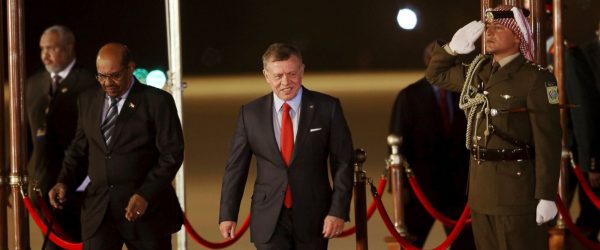
Arab leaders meeting at the Dead Sea on Wednesday are not expected to adopt momentous resolutions that could spell a departure from previous positions on key issues that include Palestine, Syria, Yemen, Libya and the war on terrorism.
But the overall message coming from the 28th Arab summit will be one of unity and accord, as underlined by the senior level of attendance, expected side meetings between prominent Arab heads of state and the substance of the Amman Declaration that will be adopted at the end of the meeting.
For the host country, presenting a united Arab front on crucial issues will be a major breakthrough.
That does not mean that the summit will set aside Arab states’ differences on a number of critical dossiers, including Syria, Iran’s regional meddling and Libya’s legitimate representative.
But King Abdullah will seek to achieve conformity over basic principles that represent the least common denominator on otherwise divisive issues.
Side meetings will see personal mediations to end bilateral rifts and reset relations.
For Jordan, it is vitally important to resurrect the moderate Arab camp that can initiate a dialogue with world powers on issues such as Syria, Palestine, Libya and the fight against terror.
Representatives from the United States, Russia and the UN will be attending the discussions and Jordan understands the need to reengage the Arab League in regional issues and, hopefully, to reclaim the initiative.
On the divisive issue of Syria, Arab leaders will underline the importance of finding and implementing a political solution that ends more than six years of bloodshed and destruction.
But Jordan will try to steer through a number of difficult hurdles, such as the fate of the Damascus regime, Arab and foreign involvement in backing various sides in Syria and the shape of the political transition that is being discussed in Geneva.
It is no secret that the Syrian conflict has polarised Arab leaderships. Jordan has abided by Arab League resolutions to suspend Syria’s membership, but it also refused to invite representatives of the Syrian opposition to the meeting.
This is a significant development that represents Jordan’s attempt to follow a middle and independent path on Syria.
On the Palestinian issue, where Jordan has direct national security interests, King Abdullah is seeking to reposition it, after years of neglect, as a central cause for all Arabs.
The timing is important, coinciding with an apparent departure by the US from a keystone for arriving at a just and lasting political settlement, which is the internationally backed two-state solution that entails the establishment of a Palestinian state on 1967 territories including East Jerusalem.
While Arab leaders will restate their commitment to the Arab Peace Initiative of 2002, they will also discuss — behind closed doors — the possible implications of, and responses to, a US proposal to convene a regional peace conference this summer.
All eyes will be on Palestinian President Mahmoud Abbas who, according to Arab League Secretary General Ahmed Aboul Gheit, may be considering presenting new ideas at the meeting.
Palestinian sources, however, denied this.
In light of the vagueness of the US proposal, Arab leaders are not expected to change their position, but will seek answers as Egyptian President Abdel Fattah Al Sisi, King Abdullah and President Abbas each head on separate state visits to Washington in April.
Recommitting to the Arab Peace Initiative represents a last-ditch attempt by Arab countries to seek a comprehensive peace deal with Israel in return for the latter’s acceptance of the two-state solution formula, in accordance with UN resolutions and the Oslo agreement.
The challenge will be to maintain this united stand before mounting US pressure to adopt an alternative route.
No doubt, King Abdullah, as head of the Arab summit, will stress, during his meeting with US President Donald Trump, the dangers involved in abandoning the two-state solution and in caving in to demands by far-right Israeli politicians to bury that option.
On Yemen, Arab leaders will back legitimacy and relevant UN resolutions and the GCC-sponsored initiative.
Iran’s intervention in Arab affairs will occupy a major part of discussions and will certainly be condemned, but Jordan will also seek to send a message to Tehran to opt for diplomacy and normalise relations with the Arab world.
Libya and the future of the national accord government will present a challenge as the fate of the Sukhairat agreement remains unclear, and the summit, while backing the Sarraj government, is unlikely to end Libya’s multi-government, multi-parliament reality.
The summit’s resolutions and the Amman Declaration will not be short of clichés. What will be put to the test is the ability to summon the political will to address immediate challenges that are not restricted to political issues, but include social, economic and cultural matters.
At the heart of all this is Arab leaders’ willingness to go ahead with the restructuring of the Arab League so that it can function as a viable pan-Arab vehicle in the 21st century.
Despite previous efforts, the 22-member organisation has failed to reinvent itself in a way that can affect the present and future of the Arab region.
More importantly, perhaps, it has ceased to inspire the Arab populace whose lack of trust in it has reached unprecedented levels.
JORDAN TIMES

Leave a Reply
You must be logged in to post a comment.